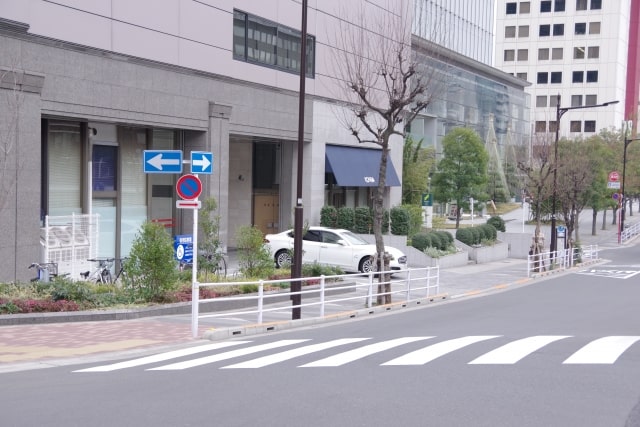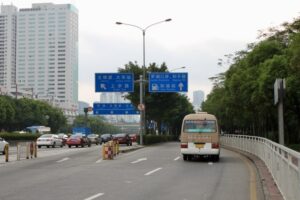In September 2024, news of an attempted murder by a Chinese national in Yoyogi, Shibuya, spread throughout Japan. This incident reignited debates about the increasing number of crimes committed by foreigners in Japan. As Japan faces an aging population and labor shortages, the country has been moving toward accepting more immigrants. However, concerns about foreigner-related crime are also growing. In this article, we will analyze the current state of foreigner-related crime using data, while examining the government’s immigration policies and the voices of concern among the Japanese public, highlighting the challenges facing Japanese society.
Current Status of Foreigner-Related Crime and Data
According to the latest statistics from the National Police Agency, the number of crimes committed by foreigners has been increasing year by year. In 2022, while the overall crime rate in Japan continued to decline, the percentage of crimes committed by foreigners showed an upward trend, particularly in violent crimes and drug-related offenses. In addition, theft and illegal overstays were also significant areas of concern, drawing the attention of society.
One notable aspect is the breakdown of crime statistics by nationality. Crimes committed by nationals of China and Vietnam have been increasing, which is closely related to Japan’s acceptance of a large number of foreign workers due to labor shortages. Furthermore, under systems like the specified skilled worker program, the length of stay for foreign workers has been extended, and some cases show that a small number of these workers become involved in criminal activities.
It’s important to note, however, that the vast majority of foreign workers contribute positively to Japanese society, and only a small percentage are involved in crime. The increase in crime rates is partially proportional to the growing number of foreign residents, which requires careful and objective analysis.
Immigration Policies and Their Relation to Foreigner-Related Crime
The increasing foreigner-related crime can be linked to Japan’s immigration policies. With the country facing a shrinking population, the government has been expanding the acceptance of foreign workers to fill labor shortages, particularly in industries such as construction, caregiving, and agriculture.
Since the Abe administration, Japan has introduced programs like the specified skilled worker system, which has increased the number of foreign workers in the country. While this policy has brought significant economic benefits, it has also raised concerns about public safety. Critics argue that inadequate support for foreign workers, including language education and cultural integration, may contribute to social friction and, in some cases, lead to criminal activity.
Voices of Concern: Japanese Public’s Cautious Stance on Immigration
There is a strong undercurrent of cautious sentiment toward immigration in Japan. On social media, voices express concern that the rise in foreigner-related crime is negatively affecting public safety. This is particularly evident among elderly people and those living in rural areas, where foreign workers have rapidly increased.
Some politicians and media outlets also take a critical stance on immigration policies, warning that Japan’s culture and social order could be eroded. While these opinions are not always based on data, they highlight the potential for immigration to create divisions within society.
At the same time, cities where foreign workers are concentrated, such as Shibuya and Shinjuku, have seen efforts toward peaceful coexistence between Japanese residents and foreign nationals. Excessive fear of crime may foster xenophobia, which poses its own risks. A calm, measured approach to foreigner-related crime is essential in these discussions.
Comparing Foreigner-Related Crime with Japanese Crime
While there is concern about the increase in foreigner-related crime, it’s important to compare it with crime committed by Japanese nationals. According to the National Police Agency, crimes committed by foreigners account for only a small percentage of overall crime in Japan, with the majority still being committed by Japanese citizens. Although the number of foreign residents has increased, this does not necessarily mean that the crime rate among foreigners is disproportionately high.
Highlighting this fact is crucial in alleviating undue fear about foreigner-related crime. Additionally, many cases of foreigner-related crime can be traced back to structural issues such as poor working conditions and social isolation. Addressing these underlying problems may help prevent future crimes.
Community Concerns and Preventive Measures
In areas with high concentrations of foreign workers, concerns about crime are increasing. For example, in urban centers like Shibuya and Shinjuku, local residents are increasingly worried about declining public safety. Some municipalities have begun hosting community exchange events and offering Japanese language classes to bridge the communication gap between foreign workers and local residents, aiming to prevent crime.
Local police forces are also working with communities to raise crime awareness among foreign residents. These efforts are essential steps toward integrating foreign workers into society and preventing criminal activity.
Balancing Safety and Immigration Policies
While the acceptance of foreign workers is vital to Japan’s economy, concerns about public safety must also be addressed. It is true that foreigner-related crime is on the rise, but the underlying causes include social and economic factors, which cannot be solved simply by restricting immigration. Moving forward, Japan needs to strengthen support for foreign workers, such as better cultural integration programs and preventive measures, while maintaining a balanced approach to immigration policy that ensures the safety of the entire society.




Comments